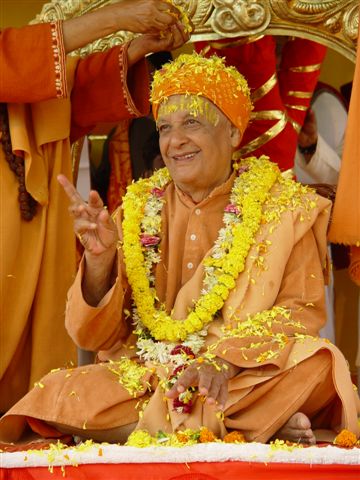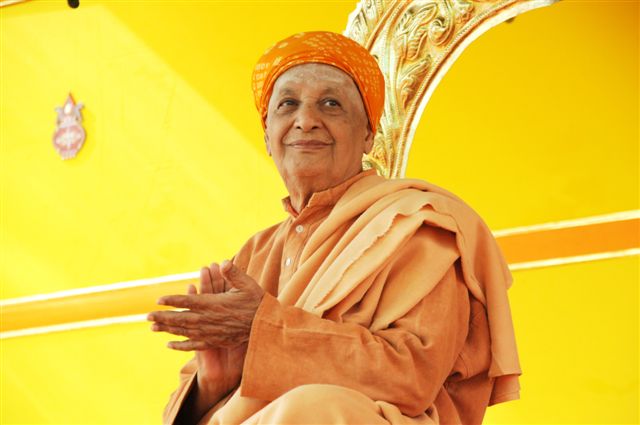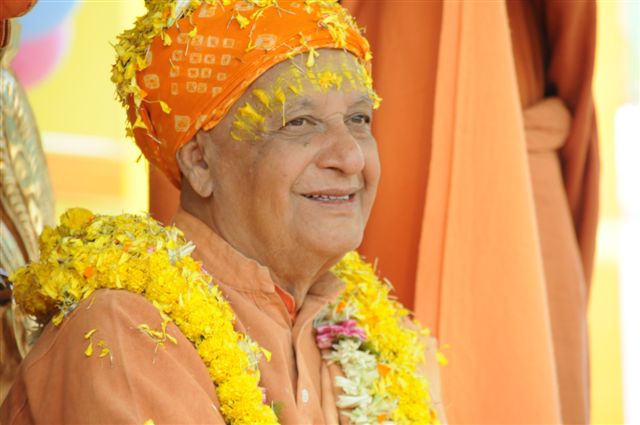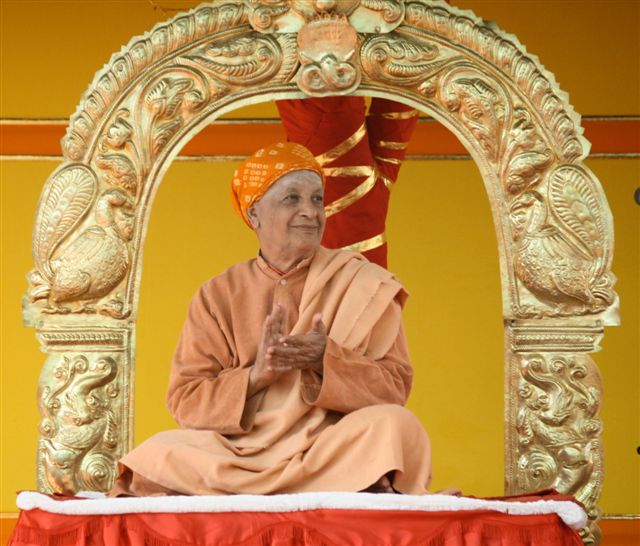Swami Satyananda Saraswati
Once upon a time there was a thunderous sound in the firmament. The sound was ‘Da’ repeated three times. The sages and seers who were assembled heard the uproar and asked what the sound indicated. They were told it meant three things: be restrained, be compassionate and learn to give.
Someone asked for an explanation of the import of these three words. Then the reply came. Devas are pleasure seekers and should restrain their passions. Demons should be kind and show mercy to others as they are very cruel and devilish by nature. Human beings should share their earnings and give to others because they are inherently tight-fisted and miserly. So, the devas need to exercise restraint, the demons need to be kind and compassionate to all and human beings need to share their earnings with those who are deprived and less fortunate.
To give, to donate, to share your bread with our less fortunate brothers and sisters is the loftiest ideal of life. The worst type of meanness and pettiness is to sit tight on our possessions. The most despicable part of the human character is to crave everything and not share our wealth with others. Try and learn to give to others.
Sannyasins have the uppermost duty to share what they have. A sannyasin cannot be a symbol of enjoyment. A sannyasin is not a consumer, he can only be a trustee. Our resources do not belong to us. Whatever we get we keep in trust for society, and nobody has the right to breach that trust.
Swami Sivananda used to say that most sannyasins and sadhus were wasting their time in India because they were in pursuit of their own salvation. When the majority of people were dying of hunger, these sadhus ate good food and prayed for their salvation. So when the yajna is being performed, I pray only for the wealth, long life, good health, success and prosperity of everyone. Let everyone be kind and caring to one another and may no one ever experience any distress in their life. May all receive the auspicious blessings of God.
Yajnas are conducted to appeal to Devi to grant us wealth, long life, success, good health and smooth sailing in these disturbed oceans of life. The purpose of a yajna is to remove people’s pain, to rectify life. There is distress, sorrow and disaster, poverty, disease and fear of death, or death. This distress can be remedied by divine grace, which is the purpose of this yajna.
Tradition of giving during yajna
Yajna has three essential components. The first is worship of the deity. The second includes the ritualistic installation and the chanting of mantras. The third is giving and receiving. The poor, the impoverished and the affluent all have to participate in the yajna. The yajna cannot be complete without daan or giving. This was the tradition when Sri Rama ruled the earth. The tradition was followed during the Dwapara period and the same tradition should also be followed during the present age, Kali Yuga.
In ancient times King Harshavardhana gave away all his personal property at the conclusion of performing the Rajasooya Yajna. It is an historical fact, not a myth. He had attended the Maha Kumbha at Prayag. There he gifted away all his personal possessions and thereafter ate his meals from leaf plates, drank water from an earthen pot and slept on the bare ground. Think of it, the Emperor of Hindustan gave away everything that he possessed and slept on the ground! He did that because offering is one of the three components of yajna.
The process of offering is very simple. Before we offer the prasad items to the Mother, we prepare a list. We then pray that after the articles have been offered to Her, they will be distributed as prasad from Her to the people who need them the most. Once She gives her approval, they are distributed. Giving means that you also give and I also give. You present your offerings to the Divine Mother and the Divine Mother gives you Her prasad in return. The prasad I have distributed consists of the offerings made by you to the Divine Mother.
The meaning of this offering is taken very lightly these days. People learn to take in their mother’s womb. Yajnas teach us about offering. Offering does not only denote giving. If you take something out of your pocket and hand it over to someone, that cannot truly be an offering. The feeling of offering all that you have, including your life, is really an offering in the truest sense.




